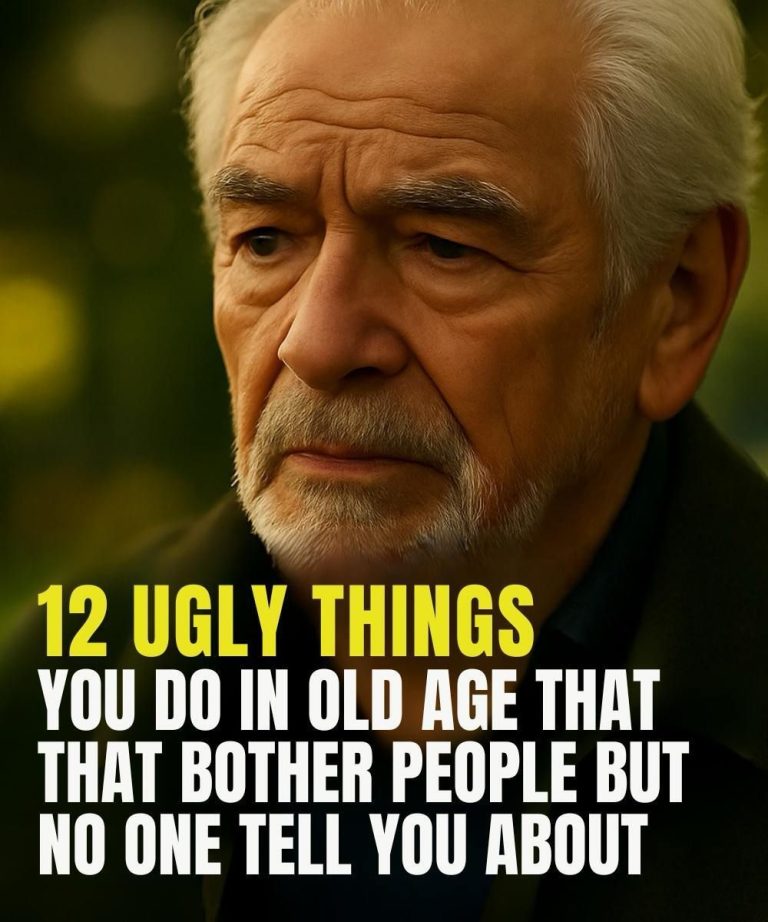Growing older is one of life’s greatest privileges. It brings with it hard-earned wisdom, deep resilience, and a treasure trove of lived stories. Yet, over time, we may unknowingly fall into habits that—while once helpful—can gradually create distance between us and the people we love.
These behaviors aren’t flaws. They’re simply patterns shaped by experience, grief, pride, or comfort. But left unchecked, they can quietly isolate us at a time when connection matters more than ever.
The good news? We can shift these habits with small, mindful changes—each one opening a door to warmth, dignity, and deeper relationships.
Here are 12 habits to be aware of—and how to turn them into pathways for positive aging and greater closeness.
1. Neglecting Personal Care
It’s easy to let routines slide. Maybe the hair doesn’t get brushed some mornings. Maybe old clothes become the norm. Over time, this can send the quiet message: “I don’t matter.”
But you do.
Try this:
Begin each morning with one intentional act of self-care. Comb your hair, change into a clean shirt, or put on your favorite necklace—even if you’re staying in. These small efforts radiate self-respect, and others feel it too.
Self-care isn’t vanity—it’s a quiet act of self-love.

2. Being Blunt Without Compassion
Honesty is a gift—but without gentleness, it can cut rather than connect. What feels “truthful” to you may feel harsh to others.
Try this:
Before speaking, ask: “Will this help, or will it hurt?” Truth delivered with kindness is always more powerful than truth delivered as a weapon.
3. Wearing Clothes That No Longer Reflect You
Clothes carry meaning. They tell others—and ourselves—how we feel. Worn, outdated, or ill-fitting clothing can unintentionally signal neglect.
Try this:
Refresh your wardrobe with a few comfortable pieces that reflect who you are now. No need for a full makeover—just choose items that make you feel present, not forgotten.
4. Dominating Conversations
Sharing your stories matters—but if you’re doing all the talking, others may feel invisible.
Try this:
Ask open-ended questions. Leave space for others to speak. Listening shows you care—and it creates moments where relationships deepen.
5. Dismissing Younger Generations
Phrases like “Kids these days…” may come from nostalgia, but they build walls, not bridges.
Try this:
Approach young people with curiosity, not comparison. Ask what excites them. Share your wisdom without dismissing theirs. Respect flows both ways.
6. Ignoring Social Etiquette in Public Spaces
With time, we can forget how our actions affect those around us. Talking loudly in quiet places, lingering too long in crowded doorways, or missing subtle social cues can unintentionally create discomfort.
Try this:
Observe the flow of people. Move with intention. Respect the space others share with you. Courtesy never goes out of style.
7. Talking Constantly About Health
Health concerns are real—but when every conversation centers on them, it can be draining for others and limit the connection.
Try this:
Of course, share your journey. But balance it with what’s bringing you joy: a good book, a funny memory, or a beautiful walk outside. People are drawn to light—and you still have plenty to offer.
8. Refusing to Rethink Old Beliefs
It’s human to hold firm to what we’ve known. But when beliefs become rigid, we shut down conversations that could teach us something new.
Try this:
Stay grounded in your values, but leave the door open. The phrase “I never thought of it that way” can be the start of real understanding.
Openness doesn’t weaken your beliefs—it shows strength in growth.
9. Not Being Mindful of Physical Space
Blocking pathways, stepping too close, or being unaware of body language can feel intrusive to others—even if unintentional.
